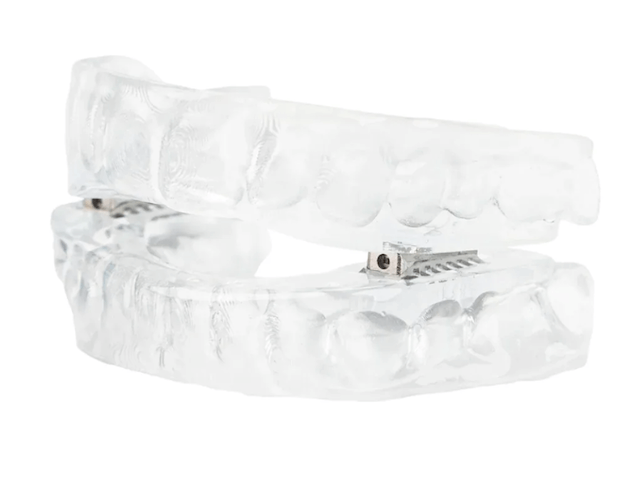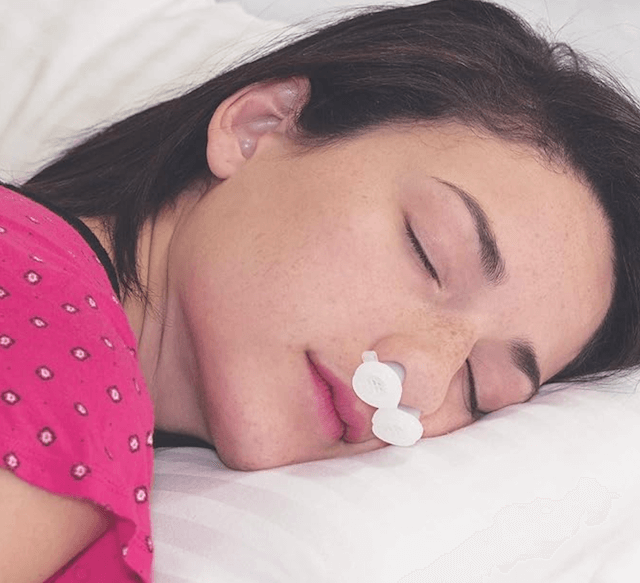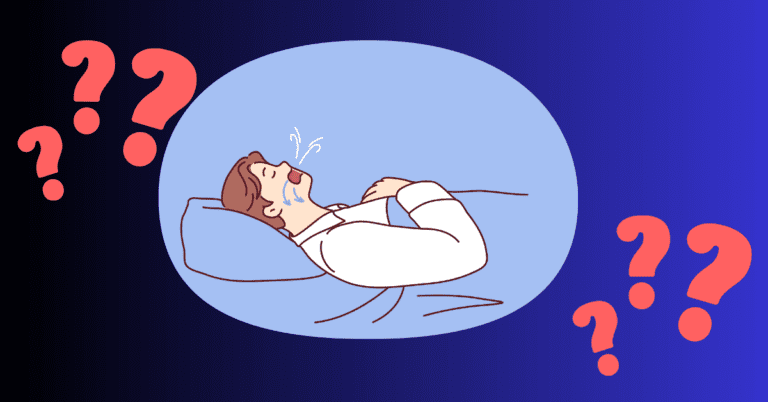Is Sleep Apnea Genetic: Let’s find out the link
Jeremy Smith is a long-term CPAP user and sleep apnea advocate. After being diagnosed with severe obstructive sleep apnea, he created ByJeremySmith.com to help others navigate CPAP therapy through personal stories, gear reviews, and practical advice.
Sleep apnea is a serious condition that affects millions of people worldwide. It causes interrupted breathing during sleep and can lead to various health complications.
But is sleep apnea passed through the genes?
I’ve been wondering about this because although I have severe sleep apnea, I am not aware of anyone in my family who does or did have it.

It is well known that lifestyle factors such as obesity, smoking, and alcohol consumption are well-known contributors, and there is growing evidence to suggest that genetics may also play a role in determining who is more likely to develop sleep apnea.
In this article, we’ll explore the genetic factors behind sleep apnea, how family history influences the condition, and whether or not sleep apnea can run in families.
What Is Sleep Apnea?
Sleep apnea is a sleep disorder characterized by repeated pauses in breathing during sleep. These interruptions, called apneas, can last anywhere from a few seconds to over a minute and often cause frequent awakenings throughout the night. There are two primary types of sleep apnea:
- Obstructive Sleep Apnea (OSA) is the most common form of sleep apnea. In this condition, the airway becomes blocked or narrowed during sleep, typically due to the relaxation of muscles in the throat.
- Central Sleep Apnea (CSA): In this form, the brain fails to send the proper signals to the muscles that control breathing, resulting in pauses in breathing during sleep.
Both types of sleep apnea can lead to poor sleep quality, daytime fatigue, and an increased risk of serious health problems such as heart disease, stroke, and diabetes.
Is Sleep Apnea Genetic?
There is growing evidence to suggest that genetics can play a significant role in the development of sleep apnea, particularly obstructive sleep apnea (OSA) which is what I have.
While lifestyle factors are undoubtedly influential, research indicates that certain inherited traits may increase a person’s susceptibility to sleep apnea. Studies have shown that individuals with a family history of sleep apnea are more likely to develop the condition themselves.
1. Family History of Sleep Apnea
Several studies have found a link between a family history of sleep apnea and an increased risk of developing the condition. If one or both parents have sleep apnea, their children are more likely to experience it as well.
This suggests that sleep apnea can, in part, be passed down through generations. Family studies have identified a genetic component to factors contributing to sleep apnea, such as airway structure and body composition.
2. Inherited Physical Traits
Certain physical traits passed down genetically can contribute to the likelihood of developing sleep apnea. For example, individuals with a naturally narrower airway, larger tonsils, or a small jaw may be at a higher risk for obstructive sleep apnea.
Additionally, having a family history of obesity, which is a significant risk factor for sleep apnea, may also increase the likelihood of developing the condition.
3. Ethnicity and Genetic Factors
Studies have shown that people of specific ethnic backgrounds, including African Americans, Hispanics, and Asians, may have a higher risk of developing sleep apnea due to both genetic and environmental factors.
Some ethnic groups tend to have distinct craniofacial structures or body fat distribution patterns that make them more susceptible to airway obstruction during sleep.
Genes Associated with Sleep Apnea
While researchers are still working to identify the specific genes linked to sleep apnea, several genes have been associated with factors contributing to the condition.
These include genes related to airway structure, inflammation, and obesity, which can increase the likelihood of developing obstructive sleep apnea.
1. Genes That Affect Airway Anatomy
Some studies have identified genetic factors that influence the anatomy of the upper airway. For example, genes that affect jaw size, tongue size, and palate shape may contribute to an increased risk of airway obstruction during sleep.
These inherited traits can make it more difficult for air to flow freely through the airway, leading to apneas.

When I look at my son, he has many physical traits like mine. For example, his nose gets stuffed up easily, which forces him to breathe through his mouth like me.
2. Genes Linked to Obesity
Obesity is one of the leading risk factors for obstructive sleep apnea, and genetics play a significant role in determining an individual’s body mass index (BMI) and fat distribution.
Several genes have been identified that are associated with a predisposition to obesity, which in turn increases the likelihood of developing sleep apnea.
Individuals with a genetic predisposition to obesity may carry excess fat around the neck, which can put pressure on the airway and lead to breathing difficulties during sleep.
3. Inflammatory and Sleep Regulation Genes
Some genetic studies have focused on inflammation and sleep regulation genes, which may play a role in developing sleep apnea.
Chronic inflammation in the airways can contribute to the narrowing of the airway and increase the likelihood of obstruction.
Additionally, genes that influence sleep-wake cycles and respiratory control may also contribute to the risk of developing central sleep apnea.
Environmental and Lifestyle Factors
While genetics may increase the likelihood of developing sleep apnea, environmental and lifestyle factors play an equally important role.
Even if someone is genetically predisposed to sleep apnea, making certain lifestyle changes can help reduce the risk of developing the condition or mitigate its severity.
1. Obesity and Weight Management
As mentioned earlier, obesity is a significant risk factor for sleep apnea, particularly OSA.
Maintaining a healthy weight through diet and exercise can significantly reduce the likelihood of developing sleep apnea, even if a genetic predisposition exists.
2. Alcohol and Sedative Use
The use of alcohol or sedative medications can relax the muscles in the throat and increase the risk of airway obstruction during sleep. Avoiding these substances, especially before bedtime, can help reduce the risk of sleep apnea.
3. Smoking
Smoking can irritate and inflame the airways, increasing the likelihood of airway obstruction during sleep. Quitting smoking can improve respiratory health and reduce the risk of sleep apnea.
4. Sleep Position
Sleeping on the back can cause the tongue and soft tissues of the throat to collapse into the airway, increasing the risk of apnea episodes. Sleeping on the side may help keep the airway open and reduce the severity of sleep apnea symptoms.
Can Sleep Apnea Be Prevented If It Runs in the Family?
While you can’t change your genetic makeup, there are steps you can take to reduce your risk of developing sleep apnea, even if it runs in your family.
Maintaining a healthy weight, avoiding smoking and alcohol, and practicing good sleep hygiene can all help lower your risk.
If you suspect you may have sleep apnea, early diagnosis and treatment can also prevent the condition from worsening.
If sleep apnea runs in your family, you must be mindful of any symptoms you may experience, such as snoring, choking or gasping for air during sleep, or excessive daytime fatigue. Seeking a diagnosis through a sleep study and receiving appropriate treatment, such as CPAP therapy, can help manage the condition and improve sleep quality.
Conclusion: Is Sleep Apnea Genetic?
While lifestyle and environmental factors certainly play a role in developing sleep apnea, there is evidence that genetics can also influence who is more likely to experience the condition.
Family history, inherited physical traits, and certain genes related to airway anatomy, obesity, and inflammation can all contribute to an increased risk of sleep apnea.
If sleep apnea runs in your family, knowing the potential genetic risk can help you take preventative steps and seek early treatment if necessary.
By managing your lifestyle and addressing any symptoms early, you can reduce the impact of sleep apnea and improve your overall quality of life.
Please let me know in the comments below if you think sleep apnea runs in your family.
Disclaimer: The content on this blog is for informational and educational purposes only and is not a substitute for professional medical advice. Always speak with your doctor or sleep specialist before starting, stopping, or changing any treatment or therapy related to sleep apnea or CPAP use.





